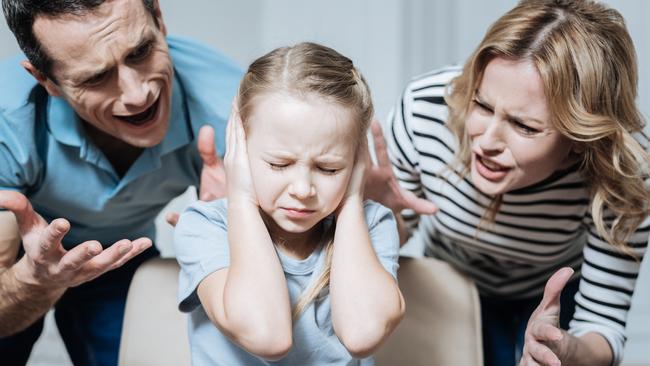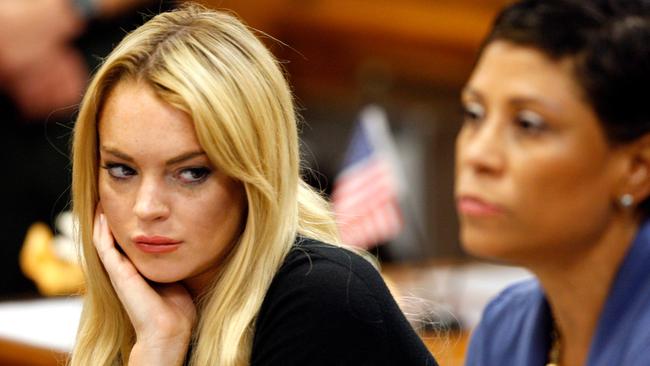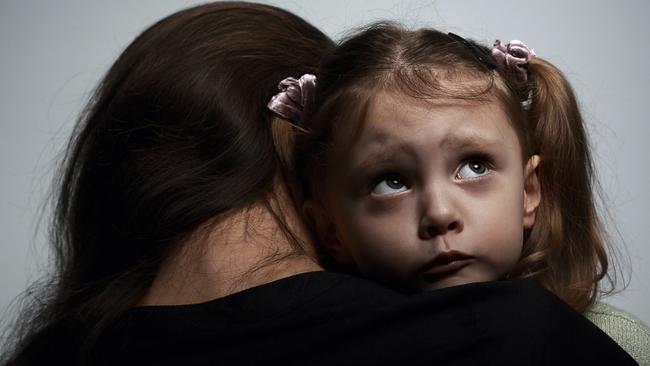Why you should never stay together “for the kids”
Many parents think that by staying together and avoiding divorce they’re doing the right thing by their children. But so often, all that does is lead to a more toxic and damaging environment, writes Kylie Lang.
Rendezview
Don't miss out on the headlines from Rendezview. Followed categories will be added to My News.
Parents should think twice before staying together “for the sake of the children” because if the adult relationship is toxic then kids are better off dealing with a split.
I’ve long held this view, even before I ended a relationship when I was five months pregnant.
My boy turns 19 this month and, yes, there have been tough times raising him alone, but enormous joy as well. I had little clue what I was getting myself into yet have never once regretted my decision to fly solo.
On paper I think two parents are better than one, for a number of reasons, but in practice, it depends on the quality of the relationship.
Better to raise a child in a generally harmonious home than in one where discord is the default.
MORE FROM RENDEZVIEW: Children need to be heard during the divorce process
New research confirms this, not that I needed proof beyond the young adult in the bedroom down the hall. When parents fight — be it physically or psychologically — there is a spill-over of aggression to any children present, according to psychologists at Penn State University in the US.
But it’s not just the ugliness that kids witness between grown-ups that affects them. Children themselves can become targets.

The study is the first to examine how aggression towards a child and towards a parenting partner unfold at the same time, according to associate professor of psychology Amy Marshall.
“Our findings suggest that children may fear for their own safety because of their history of having had aggression directed towards them during incidents of inter-parental aggression,” Marshall says in this month’s Journal of Family Psychology.
MORE FROM RENDEZVIEW: Do we give up on marriage too easily?
“Previously, researchers thought that kids reacted negatively to inter-parental violence because it threatened their security within the family unit. For example, it was assumed that children were afraid that their parents would divorce. This study shows that kids may also be afraid of what might happen directly to them.”
The researchers defined aggression as non-playful behaviours that are menacing or forceful. For physical, think pinching, slapping, hitting and kicking; for psychological, screaming, insulting and threatening harm.
They conducted four interviews with more than 200 parents in heterosexual unions whose first born was two to three years old.

Participants were recruited originally to an intervention study designed to build stronger co-parenting relationships, and came mostly from high-earning, well-educated households.
Mums and dads self-reported accounts of aggression, how they occurred, who was involved and, at the end, were given tips on preventing future outbursts.
Of incidents where their kids were present, one-quarter included parent-child aggression. And it gets worse. Parents didn’t need to be actually fighting with each other to lash out at their offspring — and remember, these are tiny tots we’re talking about.
In Australia, as in the US, existing public health programs have failed to stem the tide of violence against kids.
MORE FROM RENDEZVIEW: Why children of divorce are the lucky ones
While great strides have been made by Queensland’s Matt Sanders and his Tripe P parenting program (since exported and copied around the world), scarcely a week goes by where we don’t read about an innocent being harmed by a person they are meant to trust.
Not every angry adult will turn on a child, thankfully. But even a small percentage is unacceptable, and it’s a risk some parents are not willing to take. Those with the means to move on do so, despite the different raft of challenges that presents.
Kids raised in aggressive environments are likely to develop considerable emotional and behavioural problems that continue into adulthood — and that’s a cycle we don’t want to encourage.

In other research I read this week, when parents listen or use humour to resolve conflicts, children are less likely to be negatively affected.
The adults in this study, by the University of Michigan and published in the Journal of Interpersonal Violence, were low-income, unmarried mothers who might only see their former partners a few times a month.
Meshing these results with the study mentioned earlier, it would appear that income levels and marital status have little to do with the fallout on kids who are subjected to warring parents.
Lindsay Lohan’s parents admitted as much when they told an American TV show that the 32-year-old actor, who’s been in and out of rehab since age 21 and convicted of theft, reckless driving and cocaine possession, was a product of their toxic relationship.
MORE FROM RENDEZVIEW: Please celebs, enough with the lovey-dovey divorce
Mum Dina said when Lindsay was little she saw most of the abuse and it took its toll, while father Michael said their behaviour was responsible for the path Lindsay chose.
The couple are divorced 12 years but their legacy remains.
The bottom line is this: the way parents deal with conflict matters.
Clearly, there is work to do, including by government agencies, counsellors and educators, in helping parents better manage anger, upset and hardship.
But at the same time, when adult relationships cannot be mended, then it’s a parent’s duty to put the child first.


